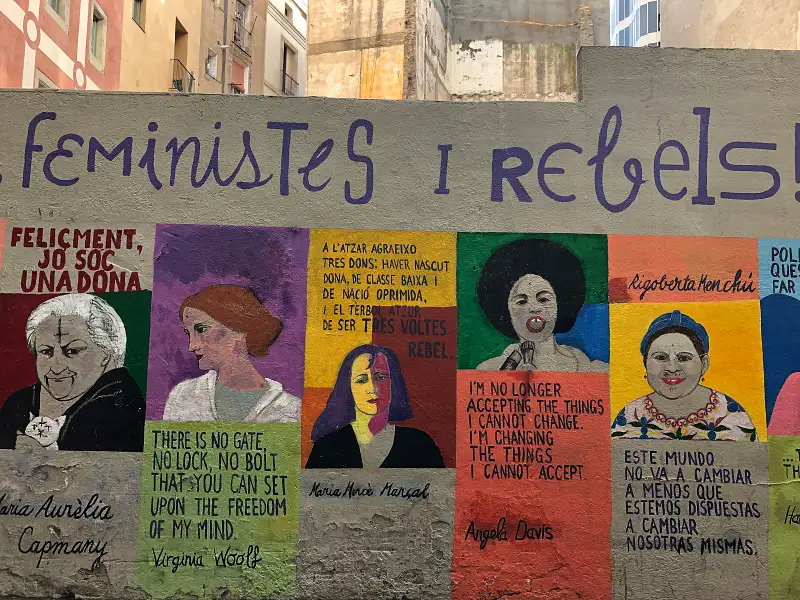Table of Contents
- Origins of Black Feminism
- Key Concepts in Black Feminism
- The Role of Black Feminism in Social Movements
- Contemporary Relevance of Black Feminism
- Challenges and Criticisms
- Conclusion
Black feminism is a critical framework and social movement that addresses the intersecting oppressions faced by Black women. Rooted in the broader feminist movement and the civil rights movement, Black feminism highlights the unique challenges and experiences of Black women that are often overlooked by both mainstream feminist and anti-racist discourses. This article explores the origins, key concepts, and contemporary relevance of Black feminism, providing an in-depth understanding of its significance in the struggle for social justice.
Origins of Black Feminism
Black feminism emerged in response to the limitations and exclusions of the mainstream feminist movement, which predominantly centered the experiences of white, middle-class women. During the 1960s and 1970s, as the feminist movement gained momentum, many Black women felt their specific struggles were not being adequately addressed. At the same time, within the civil rights and Black liberation movements, gender issues were often sidelined. These dual exclusions catalyzed the birth of Black feminism, aiming to create a space where the interconnected nature of race, gender, and class could be critically examined.
A seminal moment in the development of Black feminism was the formation of the Combahee River Collective in 1974. This group of Black feminists articulated the necessity of an intersectional approach to liberation, acknowledging that the oppressions they faced were not only based on race but also on gender and class. Their influential statement emphasized that the liberation of Black women would lead to the liberation of all oppressed people, as it would necessitate the end of racism, sexism, and classism.
Key Concepts in Black Feminism
Intersectionality
Intersectionality is perhaps the most pivotal concept within Black feminism. Coined by legal scholar Kimberlé Crenshaw in 1989, intersectionality describes how various forms of oppression, such as racism, sexism, and classism, are interconnected and cannot be examined separately. For Black feminists, understanding the intersectional nature of oppression is crucial to addressing the unique experiences of Black women. This framework allows for a more nuanced analysis of how systemic inequalities operate and affect individuals differently based on their multiple, intersecting identities.
The Matrix of Domination
Sociologist Patricia Hill Collins introduced the concept of the “matrix of domination,” which further elucidates the interconnected nature of various forms of oppression. According to Collins, systems of power such as race, gender, and class are not independent but are interlocking structures that create a complex matrix of domination. This concept underscores that Black women’s experiences are shaped by multiple, overlapping systems of oppression, and any analysis or strategy for liberation must account for this complexity.
Lived Experience and Knowledge Production
Black feminism places a significant emphasis on the lived experiences of Black women as a vital source of knowledge. This approach challenges traditional academic and theoretical frameworks that often marginalize or exclude the voices of Black women. By centering the experiences of Black women, Black feminism not only validates their unique perspectives but also enriches the understanding of social realities. This epistemological shift highlights the importance of storytelling, personal narratives, and other forms of experiential knowledge in the struggle for social justice.
The Role of Black Feminism in Social Movements
Black feminism has played a crucial role in various social movements, offering a critical perspective that challenges both racist and sexist structures. During the civil rights era, Black feminists worked to ensure that gender issues were addressed alongside racial justice. They also played a pivotal role in the development of the feminist movement, pushing for a more inclusive approach that recognized the diverse experiences of women of color. In contemporary times, Black feminism continues to influence social movements such as Black Lives Matter, which was founded by Black queer women and is deeply informed by Black feminist principles.
Black Lives Matter
Get the full article AD FREE. Join now for full access to all premium articles.
View Plans & Subscribe Already a member? Log in.





